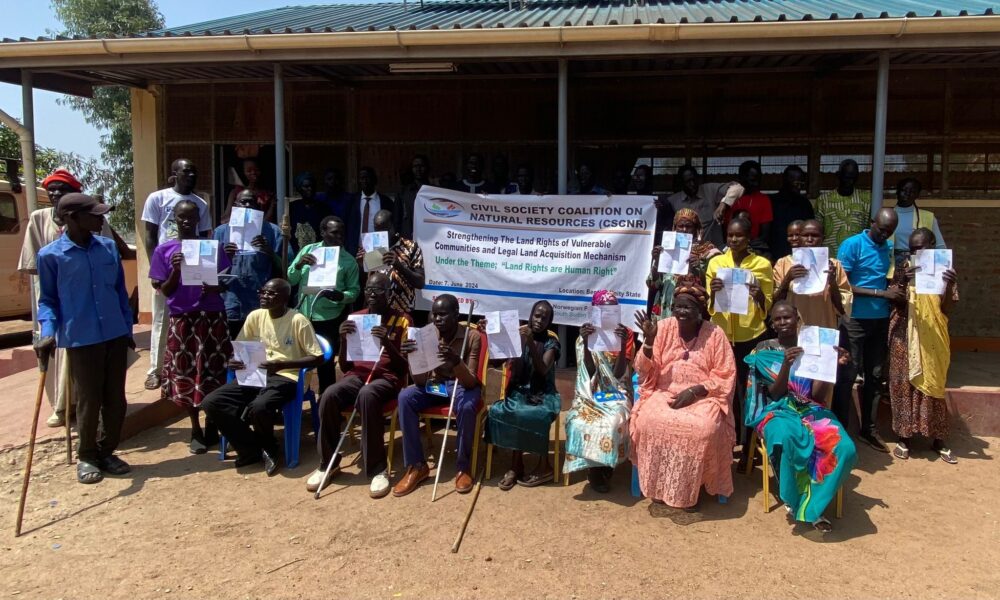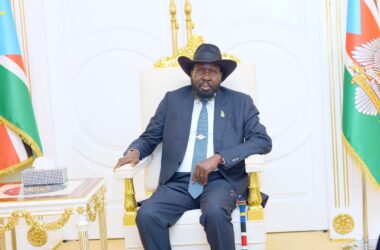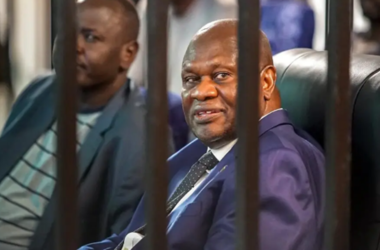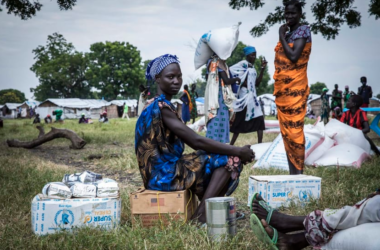By Kidega Livingstone
At least 15 Persons living with Disabilities on Unity State received land registration documents to protect their land.
The documents were provided by Civil Society Coalition on Natural Resources (CSCNR) in Bentiu Internally Displaced Persons (IDP) camp.
The handing over of the documents, which was supported by the Norwegian People’s Aid (NPA), took place over the weekend.
Speaking after the presentation of the documents, the Chairperson of the Union of Persons with Disabilities (PWDs) in Bentiu IDP, Mr. David Wal Khuol, expressed gratitude for the initiative, stating that the documents will enable the recipients to start building temporary structures as they prepare to return to their homes.
“This union has multitudes of vulnerable groups who are in dire need of having their plots registered, and I asked the Civil Society Coalition on Natural Resources not to stop at the 15 PWDS supported, but to extend the help to hundreds and thousands of vulnerable groups in the state,” Khuol said.
The CSCNR Project Officer, Mr. Gizam Moses, said land rights are the second fundamental human right after the right to life.
He highlighted the organization’s commitment to lobbying and advocating for the protection of land rights for persons with disabilities, as enshrined in the Transitional Constitution of South Sudan and the Southern Sudan Land Act 2009.
“This imitative is to support PWDs because of their inability to have their lands registered and acquire land registration documents for the laws to protect their rights to property ownership,” Moses said.
Jal Puok Nhial, a State Member of Parliament for the Unity Legislative Assembly, praised the initiative, acknowledging the efforts of the CSCNR and the NPA in supporting the Bentiu community, particularly persons with disabilities.
“As people’s representatives, we acknowledge and appreciate the efforts of CSCNR and NPA for our people. We are arguing the NPA to continue supporting CSCNR to champion such programs in our state for the betterment of our downtrodden communities,” Nhial said.
The beneficiaries, who were selected based on their vulnerabilities, ranged from individuals with visual impairments and physical disabilities to orphans, widows, and war-wounded, representing a small portion of the thousands in need of similar support.




